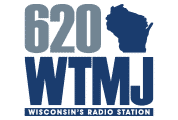MILWAUKEE – Professor of social work Melinda Kavanaugh hopes to break down barriers that family caregivers face in Wisconsin, and she thinks that the best way to do that is to bring health organizations together.
Kavanaugh was one of the organizers of a caregiving symposium held on October 9 at the Student Union Ballroom of the University of Wisconsin-Milwaukee. She told WTMJ she’s hoping opportunities like it can chip away at what she believes is the greatest obstacle for improving support for caregivers in the state.
“We’re all doing a lot of work to support family caregivers but often times we don’t talk to each other to know who’s doing what and how can we compliment each other services and build on the programs and services we have,” Kavanaugh said.
Kavanaugh said that in Wisconsin, there isn’t a lot of financial support available for caregivers, and that what is available varies drastically across the state.
“If you live in one county your services and supports could be dramatically different than if you live in a different county,” she said.
President and CEO of the National Alliance of Caregiving Jason Resendez gave the keynote speech to open the conference. He told WTMJ that nationally, the U.S. has seen a massive increase in caregivers in the last decade.
“We know there are 10 million more caregivers in 2020 than there were in 2015. We know that caregivers are caring for more people than they were in 2017, and we know that care is becoming more complex,” Resendez said.
Resendez said that Wisconsin is in the top half of U.S. states in terms of policies supporting family caregivers, ranked 17th out of 50 states in data compiled by the Alliance.
“There’s work to be done, but it’s a strong foundation to support these folks that provide essential labor,” he said.
Kavanaugh echoed that sentiment, saying that there remains a lot of work to be done to increase support for caregivers, especially marginalized ones.
“Our caregivers are not a monolith. They are Latino and African-American and LGBTQ and young,” she said.
To find resources on caregiving for an aging family member or someone with a disability, Kavanaugh said to start with your county’s Aging and Disability Resource Center. She also recommended calling 211 as a good way to get connected with resources if you’re not sure where to look.











